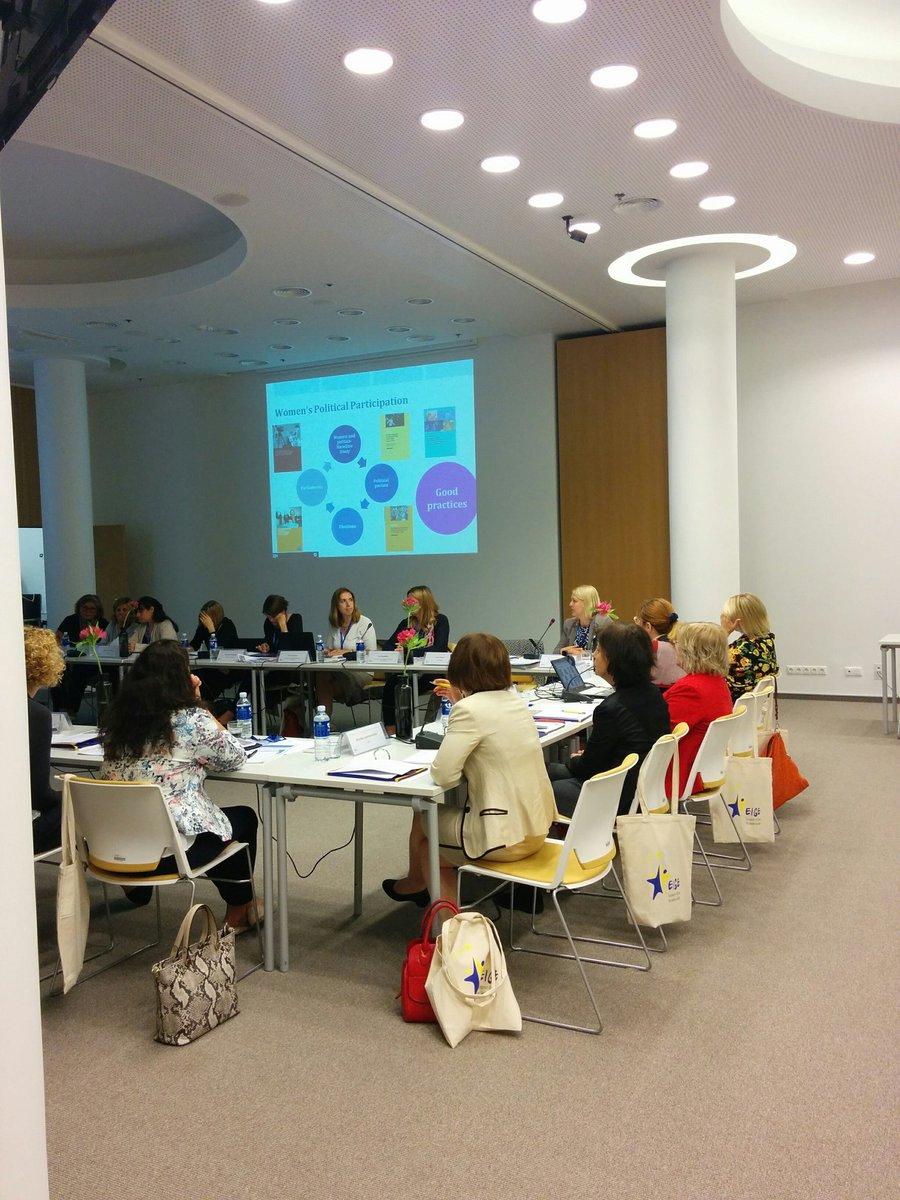
Equality between women and men is a fundamental principle of the EU, and one that most Europeans consider a policy priority. Women’s representation in political contexts and their involvement in political decision-making are essential to the pursuit of a democratic and non-discriminatory political process in the Member States. Moreover, research shows that the active inclusion of women in political decision-making has a number of consistent positive effects on society, and that these improve citizens’ lives: more equitable societies, more inclusive governance, higher standards of living, positive development in education, health and infrastructure, and reduced political corruption.
Nevertheless, women are still underrepresented in political decision-making and continue to face a set of obstacles when trying to access the political arena, such as negative stereotyping of women politicians, the persistence of traditional role models in family life, and lack of political support and networks. In this context, the issue of gender-sensitive parliaments is highly relevant. Parliaments – as the main national democratic institutions in the EU Member States – have a political and cultural duty to start and/or continue political processes and policies aimed at making women’s representation effective. Thus, parliaments should ensure that their efforts to work towards fairer societies include a gender dimension.
Although in recent years there has been some progress in removing formal barriers to women’s participation in politics, as well as attempts by the EU to implement gender quotas and raise awareness of this issue, women remain underrepresented at all levels of decision-making. On average, women occupy less than a third of seats in the national parliaments of the EU. The reality is that women and men in Europe and around the world still do not have equal opportunities when it comes to politics. So what needs to change?
The European Institute for Gender Equality (EIGE) is in the process of developing a self-assessment tool that helps to collect empirical data and to measure the ‘gender sensitivity’ of a political institution by looking at how well it is able to respond to the different needs of women and men. Taking into account a range of key criteria, EIGE’s interactive online tool aims to offer a way to assess and monitor gender equality in parliaments.
If interested to find out more on proposed indicators for assessing parliaments' gender-sensitivity, please access & download the Background Document and the Presentation. The Background Document has been prepared by Studio Come for EIGE. The views expressed herein are those of the consultants alone and do not necessarily represent the official views of EIGE.
If interested to receive live updates from the meeting, you can follow #GenderParliament on Twitter.
Downloads
-
Gender Sensitive Parliaments_Agenda.pdf
- Language
- EN
- File type and size
- PDF, 157 bytes
-
Gender Sensitive Parliaments_Presentation.pdf
- Language
- EN
- File type and size
- PDF, 157 bytes
-
Gender-Sensitive Parliaments_Background Document.pdf
- Language
- EN
- File type and size
- PDF, 157 bytes
-
Gender Sensitive Parliaments_Presentation_OSCE.pdf
- Language
- EN
- File type and size
- PDF, 157 bytes
-
Gender-Sensitive Parliaments_IPU.pdf
- Language
- EN
- File type and size
- PDF, 157 bytes
-
Gender Sensitive Parliaments_Presentation_EIGE.pdf
- Language
- EN
- File type and size
- PDF, 157 bytes